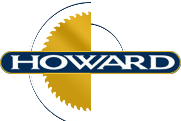In the aerospace industry, aluminum alloys of the 7XXX series are commonly used to make components of aircraft. Two of the most commonly utilized alloys in this series are 7050 and 7075 aluminum. Because of the high strength coupled with good resistance to exfoliation and stress corrosion cracking, 7050 is commonly used in structural aircraft parts. Another highly capable 7XXX series alloy, 7075 also demonstrates superior strength and is heavily used by the aircraft and ordnance industries.
Below we cover the properties and uses for both 7075 and 7050 aluminum.
7075 Aluminum
A material’s modulus of elasticity and shear modulus measures its resistance to deformation. 7075-T651 aluminum plate has a typical modulus of elasticity of 71.0 GPa (10,300 Ksi) and a typical ultimate shearing strength of 48 KSI or 331 MPa. The shear strength is the maximum shearing stress the material can endure before it undergoes permanent deformation. It has considerable strength and good resistance to deformation, which makes it ideal for applications that require a lightweight, yet tough metal.
The yield strength of an alloy is one of its most important characteristics. It is defined as the maximum stress that will not cause permanent deformation of the material. The tensile yield strength of 7075 aluminum alloy is 503 MPa (73 KSI). It takes that much stress imposed on a section of 7075 aluminum alloy before it will not return to its original shape. This characteristic makes it highly useful for structural applications such as aluminum tubing for frames.
The ultimate strength of materials is another useful factor. It is the maximum stress that may be imposed before the material reaches its fracture point, or “snaps.” Prior to reaching the fracture point, the material will experience permanent (or plastic) deformation, not being able to return to its original shape. This parameter is useful for situations in which deformation is possible and needed, such as in tall buildings and military applications. Considering its low density, 7075-T651 aluminum plate has an impressively high ultimate tensile strength of 572 MPa (83 KSI).
The aerospace industry often utilizes 7075 aluminum. This industry routinely considers fatigue failure rates. A material may fail even if it undergoes a stress lower than its yield. A cyclical stress, which involves periodic loading with a certain level of force, can impose micro fractures which weaken the material, eventually causing it to break. A material’s fatigue strength indicates its ability to undergo this type of cyclical loading. It is a useful measurement for applications involving parts of this material that are subjected to repeated loading cycles, such as those that occur in motor vehicles and aircraft. Type 7075-T651 aluminum alloy has a typical fatigue strength of 158 MPa (23 KSI). This fatigue strength value is derived from the application of 500 million cycles of periodic, continuous loading of material below the yield point. This demonstrates how relatively small repeated forces and stresses can lead to the fracture of a strong alloy over a period of time.
Your Source for 7075 Aluminum
At Howard Precision, we carry 7075-T651 aluminum plate in thicknesses of .25-inches all the way up to 8-inches. Our master plate sizes are typically either 48.5- or 60.5-inches width, each with a length of 144.5-inches. Although most of the 7075-T651 aluminum plate we offer conforms to AMS 4045, QQA 250/12, and ASTM B209 specifications, please let us know if you have any specification requirements at time of quotation and/or order. Every piece of aluminum we sell is fully traceable back to the master plate, complete will mill certifications. You can trust our team of aluminum experts to provide you with accurate information about specific mills, industry specifications, or compliance matters.
7050 Aluminum
If your application requires high-strength, then 7050-T7451 aluminum plate could be what you need. Alloy 7050 aluminum plates, more so than 7075, are used frequently for aerospace requirements, particularly in the range of 3 to 6 inches thick. In fact, this alloy is often used in aircraft components such as fuselage frames and bulkheads.
Although the mechanical properties of 7050 are similar to 7075, there are some variations.
First, 7050 T7451 offers better stress corrosion cracking resistance and corrosion resistance. Also, toughness than alloy 7075. Compared to other aerospace alloys, 7050 is less quench sensitive. Because of this, the alloy’s strength properties, fracture toughness levels, and corrosion cracking resistance are retained more effectively than other high-strength aluminum alloys, especially in thicker sections. This also contributes to slightly better machinability, as compared to other high strength aluminum alloys, in those heavier thicknesses.
At Howard Precision Metals, our 7050 and 7075 plate inventories are primarily filled with Kaiser Select Aerospace plate. This plate is known for providing lower residual stress, consistent grain control throughout its thickness, and exceptional machining performance. Kaiser products utilize a highly automated manufacturing process that delivers consistency from lot to lot as well as delivering the industry standard for flatness.
Your Source for 7050 Aluminum
As a 100% aluminum distributor, we know that quality performance beings with premium aluminum products. That’s why we stock only the best aluminum plate and extrusion products available. Our 7050 aluminum plate is in-stock and ready for order. Need sawing? No problem. Let us do it for you. With our custom-built, high-speed, precision aluminum plate saws, we can hold saw tolerances as tight as ±.005” on any aluminum of our wrought aluminum alloys, which includes 7050 aluminum plate.
Since 1928, our company has serviced customers from many different industries. If you need 7075 aluminum or 7050 aluminum plate, we have you covered with an extensive in-stock aluminum. To learn more about how we can supply you with the best aluminum for your applications, give us a call today at 800.444.0311 or request a quote directly on our website.


